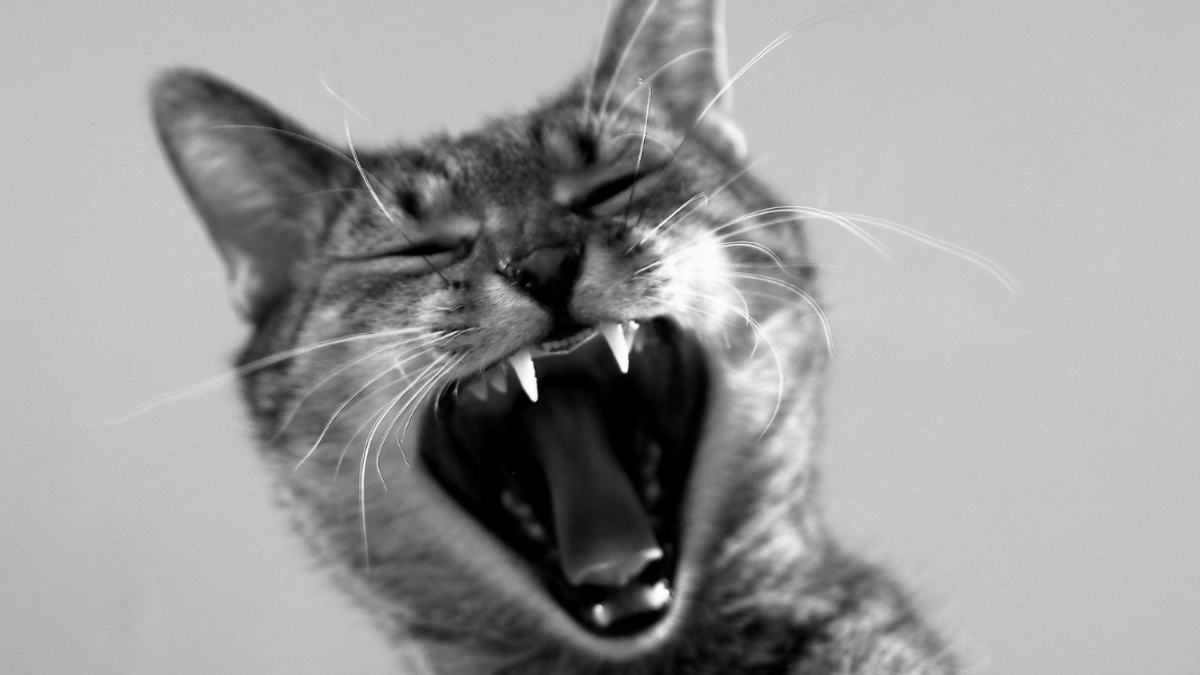Whether you are a beginner with a young kitten, or if you have an elderly big cat instead, we could suddenly find one of his teeth on the ground, on the dog’s bed or near the bowls.
At that point the doubt arises spontaneously: At what age do cats lose their teeth? Is there anything we can do to help them at this stage? What does it mean if the cat changes teeth as an adult? Let’s find out!
Do cats have milk teeth?
Yes, just like humans and like most mammals, cats have baby teeth, also known as deciduous teeth. They emerge around 2 weeks of age as small, sharp pins.
The milk teeth fall out during the growth of our felines, to make room for that final: this succession of two successive dentitions is defined diphiodonts.
Cats have 26 milk teeth, while as an adult they will have 30!
But let’s see precisely at what age cats lose their teeth.
At what age do cats lose their teeth?
Unlike us humans who keep the milk teeth for several years before the permanent teeth appear, our cats face these 2 steps already in the first year of life.
At what age do cats lose their baby teeth?
Kittens naturally say goodbye to baby teeth at the age of 3-4 months. The small and very white infant tusks will make way for the new and permanent teeth, which will already be clearly visible around the 6 months of life, and complete the 9.
Because felines are heterodonts like us, they have teeth that differ from each other in terms of shape and functionality. The first new teeth to appear will in fact be:
- The incisorswhich have a gripping and cutting function;
- i primary caninesinstead deputies to the laceration of fabrics, such as meat.
To complete the picture will be the premolars, which instead grind and chop the food.
When do adult cats lose their teeth?
The loss of permanent dentition is obviously not physiological, and does not occur (as one might imagine) when the cat is very old.
Already from 6 years of age onwards, the risk of falling begins to be more frequent. When the cat loses its teeth as an adult, there can be many causes:
The most frequent cause is often the accumulation of tartar and plaque, which weaken the collar of the gums and can inflame the root, favoring the entry of bacteria and potential infections.
Should I be concerned if the cat loses its teeth?
If it’s a puppy, generally everything happens without the need to intervene in any way. Monitor often that the inflammation does not get worse. To relieve the swelling caused by the detachment of the tooth a little, you can provide frozen bite toys that give relief to inflamed gums.
When teeth fall out in adulthood instead the cause could be gingivitis or periodontitis, as well as some types of infections. For this reason it would always be good to submit the cat to a veterinary check as soon as possible, to assess the extent of the problem. In any case, if you notice that your cat appears dejected or if the swelling is excessive, contact your veterinarian immediately.
How to help Micio when he loses his teeth?
In addition to providing him with frozen diversions, such as toys or snacks, it is very important to choose the right food for cats with dental problems.
A moist, soft food that doesn’t need to be chewed too much will certainly be preferable to kibbles if your cat is already missing a few teeth.
If you haven’t already done so, book a teeth cleaning and in particular a scaling to remove tartar.
The therapy in case of inflammation andor more serious pathologies it will always be established by the vet: it could be of interest to the use of painkillers (even on a natural basis), or antibiotics in case of infections depending on the case.
How to prevent tooth loss in adulthood?
A good cleaning routine of the teeth must be established as soon as possible, since oral cable disorders can in the long run become a strong discomfort due to pain: all the more reason, prevention appears to be the best way forward.
For preventive purposes, however, kibbles seem to be more effective in removing food residues from the teeth during chewing.
And how did your cat deal with the loss of teeth? What tricks can you use to brush them?

